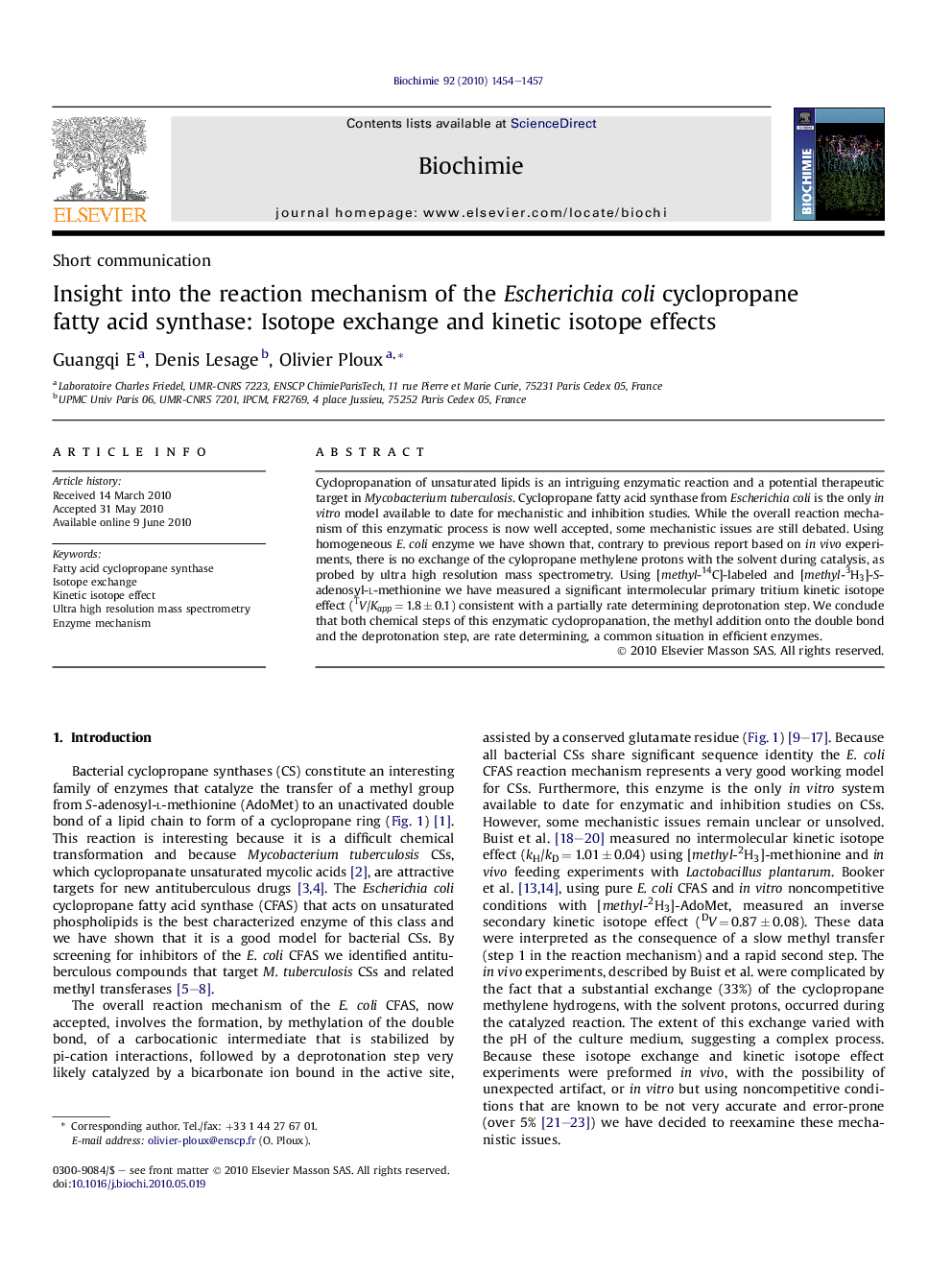| Article ID | Journal | Published Year | Pages | File Type |
|---|---|---|---|---|
| 1952583 | Biochimie | 2010 | 4 Pages |
Cyclopropanation of unsaturated lipids is an intriguing enzymatic reaction and a potential therapeutic target in Mycobacterium tuberculosis. Cyclopropane fatty acid synthase from Escherichia coli is the only in vitro model available to date for mechanistic and inhibition studies. While the overall reaction mechanism of this enzymatic process is now well accepted, some mechanistic issues are still debated. Using homogeneous E. coli enzyme we have shown that, contrary to previous report based on in vivo experiments, there is no exchange of the cylopropane methylene protons with the solvent during catalysis, as probed by ultra high resolution mass spectrometry. Using [methyl-14C]-labeled and [methyl-3H3]-S-adenosyl-l-methionine we have measured a significant intermolecular primary tritium kinetic isotope effect (TV/Kapp = 1.8 ± 0.1) consistent with a partially rate determining deprotonation step. We conclude that both chemical steps of this enzymatic cyclopropanation, the methyl addition onto the double bond and the deprotonation step, are rate determining, a common situation in efficient enzymes.
